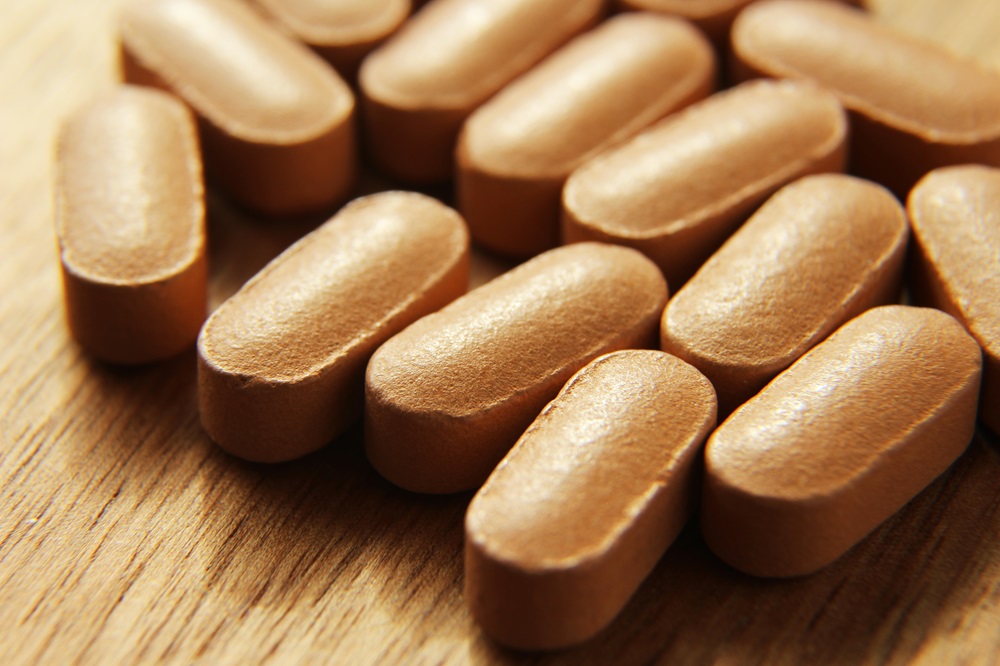Astragalus – Properties and Uses

Astragalus is an adaptogenic plant originating from Asia, which may show a range of valuable properties. This perennial may act as an antioxidant, while also supporting the proper functioning of the immune system and having a positive effect on cell vitality. The herb can be used as a food additive and is also a popular ingredient in dietary supplements. Astragalus - what is it good for? What properties does the plant have? Is it worth using dietary supplements containing extracts from this perennial?
Table of contents
Astragalus - what is it?
Astragalus membranaceus L. is a plant from the legume family, naturally growing in China and Mongolia. It is a herbaceous perennial that prefers dry, sandy soils, and is characterized by its distinctive alternate leaf arrangement. Astragalus is an adaptogenic herb with butterfly-shaped flowers gathered in small clusters. The plant’s fruits are inconspicuous pods filled with seeds.
Astragalus membranaceus, also known as Huang Qi, meaning “yellow leader,” has been known and used in China and other Asian countries for hundreds of years. It is a plant rich in valuable substances, with its root containing up to 320 beneficial compounds. Astragalus root contains flavonoids, isoflavones, saponins, and polysaccharides. As a leguminous plant, astragalus is also rich in protein and essential amino acids.
Astragalus - properties and effects
According to the beliefs of ancient China, astragalus was considered a remedy to improve appetite, which could also reduce signs of chronic fatigue and act against diarrhea. The plant was also used to boost vitality and as support for a weakened body.
Modern scientific studies indicate that astragalus has adaptogenic properties. This means the plant may increase the body’s resistance to stress factors. In addition, astragalus may have antioxidant potential, helping reduce oxidative stress and neutralize free radicals and reactive oxygen species.
Astragalus membranaceus may act antibacterial, anti-inflammatory, and antiviral. Its root is considered an immunostimulant that can support immune system function, enhancing the body’s defenses. The valuable properties of the herb are mainly attributed to the polysaccharides in its root, which can, for example, increase macrophage activity.
Moreover, the perennial may positively affect the nervous system, protect the brain against stress factors, and support mental performance, including concentration, learning ability, and memory.
The active substances in the plant may also help regulate glucose metabolism and improve insulin function. As a result, astragalus may reduce the risk of type 2 diabetes and alleviate its symptoms. Additionally, the perennial may show potential in treating inflammatory bowel disease by supporting gut microbiota balance.
Huang Qi may also help regulate hormonal balance, interacting with anabolic hormones and increasing their levels in the body, while influencing catabolic hormones by lowering their concentrations. The perennial may inhibit myostatin production and improve protein absorption. For these reasons, astragalus is valued by athletes and physically active individuals who aim to build muscle mass and support post-exercise recovery.
There is also evidence suggesting that astragalus may influence longevity. Studies so far indicate that the plant contains compounds that may increase telomerase activity, which could extend chromosome life, have a positive effect on DNA, and prolong cell lifespan, potentially slowing the aging process.
Astragalus membranaceus - uses
Astragalus membranaceus is a plant with a pleasant fragrance and a mild, slightly sweet flavor. It can be used as a food additive to improve texture and extend shelf life. The plant may also slow bread staling and improve the microbiological stability of foods.
In European culture, astragalus is not a common food additive, but dietary supplements containing the plant’s root are becoming more available. On store shelves, one can find astragalus in extract form, tablets, or capsules, as well as in powder form or as dried roots. The choice of the right form of supplementation depends on individual needs and preferences.
Astragalus root - supplementation
There are still no official recommendations on the safe, effective daily amount of astragalus root in supplements.
In scientific studies, doses of 10–30 g of fresh root per day or 300–500 mg of astragalus extract taken 2–4 times daily are most common. When using astragalus dietary supplements, one should follow the manufacturer’s instructions and not exceed the recommended dose to avoid adverse effects.
Astragalus - contraindications and side effects
Astragalus membranaceus is generally considered safe and well tolerated by the human body. When taken in appropriate amounts, it should not cause undesirable effects. However, excessive intake may lead to side effects such as skin rash, nausea, stomach pain, vomiting, or diarrhea.
People with high blood pressure or type 2 diabetes should consult their doctor before starting supplementation with astragalus-containing products to ensure safe use.
When deciding to supplement with astragalus, it is also worth noting possible interactions – current data show that the herb may interact with immunosuppressive drugs as well as corticosteroids, reducing their effectiveness.

